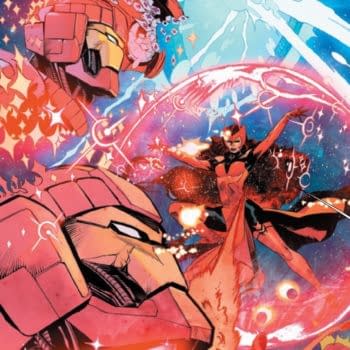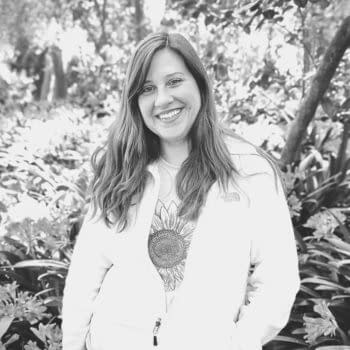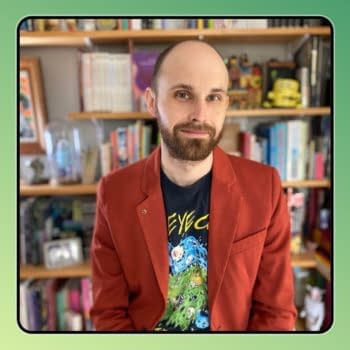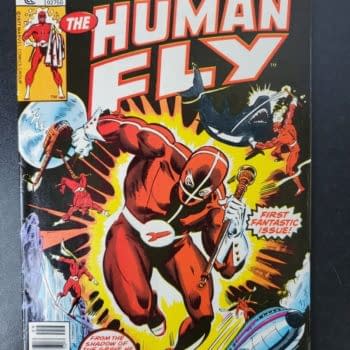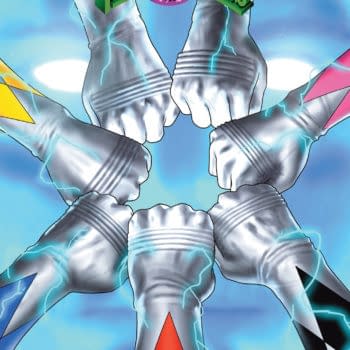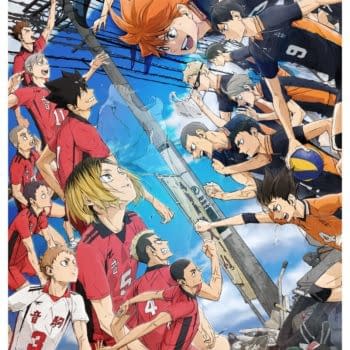Posted in: Comics | Tagged: Comics, dale lazarov, gay, lgbt
In Continuity: Why People Complain About The Lack Of Gay Characters In Mainstream Comics And Why It Isn't About Gay Characters

I used to feel I had a lot of common cause and patience for the whole "Y ur comics haf no gay??" complaint. It's become a thing that's revived in social media anytime someone makes a samey blog post about gay superheroes and/or Kevin Keller; for a lot of people, gay characters in mainstream comics is still big news, so it's natural that samey blog posts about the topic reoccur every few months.
Something today tipped me over into disassociating myself with this complaint in a radical way. Rudy Boiko, who links to an androgynous yaoi-style art website in her profile, posted the following on her Facebook page: "Having worked in a comic book store, I can honestly say there are gay readers. It's about time we stopped having to read niche market books, or sub-cultural books just to see a familiar scene."
As a writer/editor of niche/sub-cultural gay comics, I was so aghast by the idea that someone resents "having to read" gay comics to see gay characters that I instantly unfriended her. That said, Boiko's complaint about about "having" to buy niche/subcultural comics to see gay characters snapped something into place for me.
You see, "Y ur comics haf no gay??" isn't really about "gay characters". It's about "brand validation". People protest that "mainstream" comics publishers don't include gay characters because they're a brand, a canon of sainted figures, that they want to be associated with. It's not a cry for gay representation — it's for gay representation "in universe". You see, non-canon gay comics are not "in continuity". It's like when a comics buyer asks a comics dealer if this comic "counts" for the crossover: if it doesn't "count", it's not worth reading.
Back in the day when gay visibility was more scarce than it is now, no one protested when mainstream (read: straight) prose authors did not include gay characters and celebrated when gay prose authors built careers with publishers with nationwide or international distribution. The assumption was that it was up to us to make it happen for ourselves. If you ask me, depending on an institution for validation — for counting, for canonicity — is 1) demanding someone to do something for you won't do for yourself, and 2) giving someone else power over your value as a person. Conversely, if you are able to make it happen without seeking the permission or courting the credibility of an institution, you pretty much deny the power it claims to have over you to be visible.
This reminds me of the occasions when someone's berated me to write about X or Y thing that's not in my comics. When I am pressured to do something that doesn't work with my aesthetics or ideology as a writer/editor, I say, "I'm sorry, but that's not what I'm up to." If the pressure to conform to the complaint continues, I say: "If you don't see what you want to see in comics, make your own fucking comics."
Dale Lazarov is the writer/editor of gay erotic comics published and distributed internationally in hardcover collections by Bruno Gmünder Verlag and published digitally through Ribbon and Comixology. His website is at www.dalelazarov.com.






